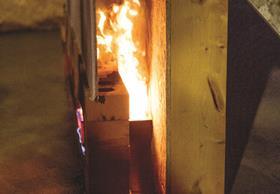Insurers begin to bump up premiums by more than 50% or even decline cover in wake of Grenfell fire

Contractors are being warned to expect big hikes in insurance premiums in the wake of the Grenfell fire and additional scrutiny following publication of the forthcoming Hackitt review.
The boss of one tier-one contractor told Building his firm is facing a large increase in its professional indemnity (PI) premium as insurers become increasingly worried about the risks associated with contracting “and anything to do with cladding”.
And while a majority of firms surveyed earlier this year by Build UK and the Construction Industry Council (CIC) said they had not yet seen their PI premiums rise, 10% had been hit with increases in excess of 50% or had been refused cover altogether.
CIC chief executive Graham Watts said companies are likely to face a grilling from insurance firms when their policies come in for renewal in the coming months.
“Construction companies are going to be asked more and tougher questions from now on, as the risk is perceived to be greater. Insurers will tighten the conditions under which they will offer cover, or even withdraw it altogether.”
Watts said there is about £2bn-worth of remedial work to be done on anywhere between 300 and 600 high-rise residential towers in the UK following Grenfell, and that there are concerns around the industry’s capacity to cope if companies walk away because of unaffordable insurance.
Pressure to bump up premiums could increase further following publication of the Hackitt report into building regulations and fire safety, due later this month.
Greg Harrison of insurance broker Howden acknowledged that a number of insurers are scaling back their exposure on accounts that are heavily involved in the design, specification or installation of cladding and said firms “should be prepared to carry out a thorough review of all projects involving buildings with cladding undertaken in the past 12 years as soon as possible.
“In some cases we are seeing insurers restricting cover or at worst, declining to renew. However, as long as the right questions are asked and firms can demonstrate that they have undertaken a thorough review of their cladding contracts and found limited exposure, then we would expect renewal terms to be reasonable and any restriction in cover, if any, to be limited.”
But many firms would find such a review process to be an administrative nightmare, with the client ultimately paying for it, according to the tier-one contracting boss.
“The amount of investigation required is very time-consuming and the bureaucracy involved is overwhelming. We will simply pass the cost onto our clients,” he said.




























No comments yet